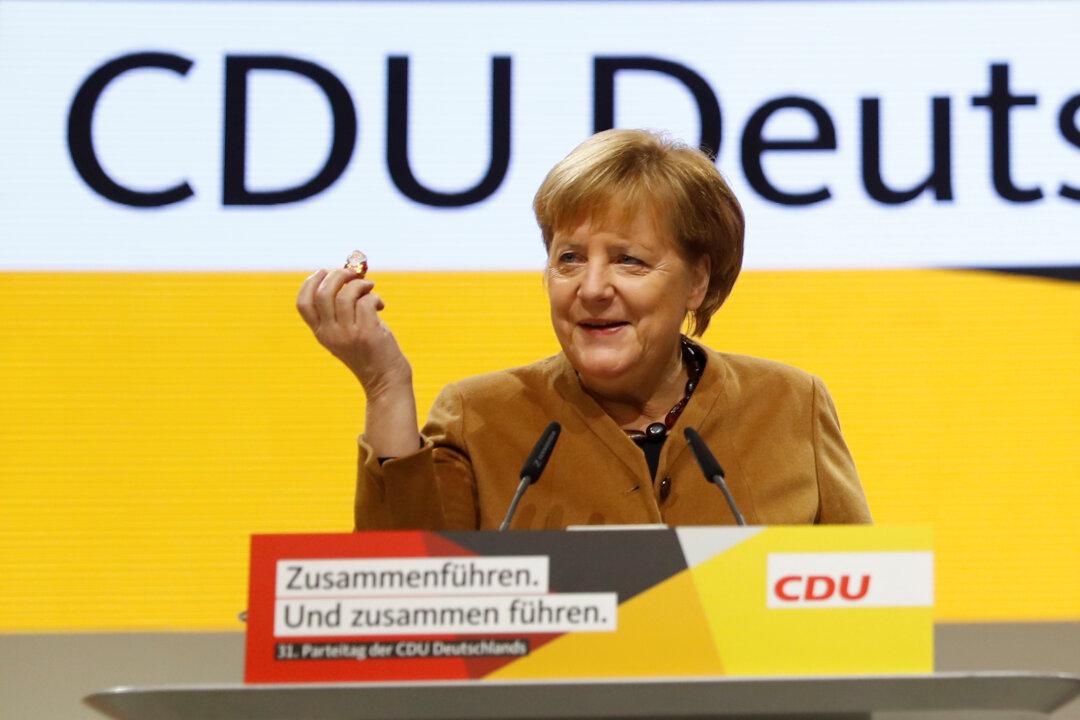HAMBURG—Angela Merkel’s Christian Democrats vote on Dec. 7, to decide who replaces her as party leader and moves into pole position to succeed her as German chancellor.
The frontrunners are Annegret Kramp-Karrenbauer, a Merkel protege seen as the continuity candidate, and Friedrich Merz, a Merkel rival who has questioned the constitutional guarantee of asylum to all “politically persecuted” and believes Germany, Europe’s biggest economy, should contribute more to the European Union.





